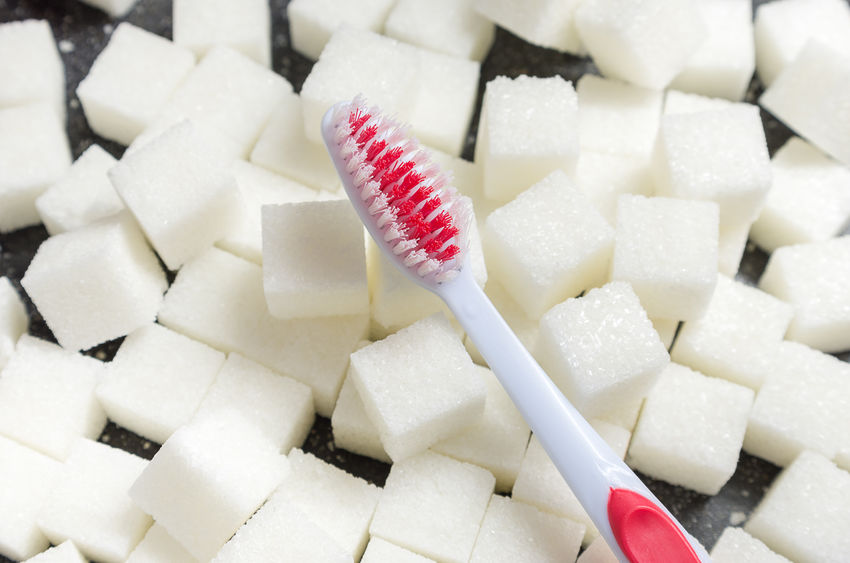
Let’s get granular about cavities. We all know what cavities are, right? Tooth decay that creates permanently damaged areas in the hard surfaces of the teeth that become tiny holes. But the more we actually know about cavities, the better job we can do at preventing them.
Did you know that cavities are one of the world’s most common health problems? According to the World Dental Federation, untreated tooth decay is an issue affecting nearly half of the world’s population. Cavities are most prevalent in children, teenagers, and older adults, but anyone with teeth is at risk of developing tooth decay.
What Causes Cavities?
Simply put, sugary foods cause tooth decay. So when bits of food and drink like bread, fruit, candy, milk, soda, and the like stay in contact with your teeth, they cause decay. The bacteria in your mouth turns these foods into acids, then the bacteria, acids, and food debris combine with your saliva to form plaque. This plaque clings to the surfaces of your teeth, dissolving the enamel and causing cavities to form.
How Do You Know If You Have a Cavity?
Signs and symptoms of cavities often depend on where they are in your mouth and how large they are. You may not even have any symptoms at first, if the cavity is small enough, but as it gets larger, you may experience some of the following:
- Tooth sensitivity
- Visible black, white, or brown stains or spots on the teeth
- Visible holes in the teeth
- Pain when you eat or drink sweet things, or hot and cold things
- Pain when you bite down
- Pain or a toothache that occurs at random
Cavity Contributors
Everyone with teeth is susceptible to tooth decay and cavities, so it’s important to do what you can to minimize the chances of getting them with preventative care. Being aware and conscientious of habits that can affect your overall oral health can go a long way. So here are a few things that can contribute to the formation of cavities.
- Frequent consumption of sugary food and drink that clings to the teeth– ie. bread, cereal, chips, ice cream, milk, soda, etc.
- Poor oral hygiene. When you don’t brush properly and often enough, you’re giving plaque and decan an open invitation.
- Insufficient fluoride. This mineral, found in toothpaste and tap water, helps to strengthen tooth enamel and prevent cavities.
- Dry mouth. Saliva plays an important role in oral health, constantly working to wash away food particles and plaque that can cause decay. Ergo when you don’t have sufficient amounts of saliva at work in the mouth, your chances for forming cavities are increased.
- Acid reflux. If you suffer from frequent reflux, talk to your dentist about how to best protect your teeth. That stomach acid that gets forced into the mouth breaks down tooth enamel and contributes to decay.
Cavity Treatment
If you do get cavities, you’ll need to work with your Chattanooga family dentist to figure out best treatment options and preventative measures to take as you move forward. Depending on the size and location of your cavity, your dentist may suggest a basic filling made of silver alloy, porcelain, gold, or composite resin. If the tooth decay is more severe, you may be looking at a root canal and/or crown. The best way to avoid getting cavities is to brush your teeth at least twice daily with fluoride toothpaste, floss regularly, eat a healthy diet without too much intermittent snacking, and of course, see your Tedford Family Dentist regularly for cleanings and exams. Our team will work with you to help prevent tooth decay and keep you smiling!
